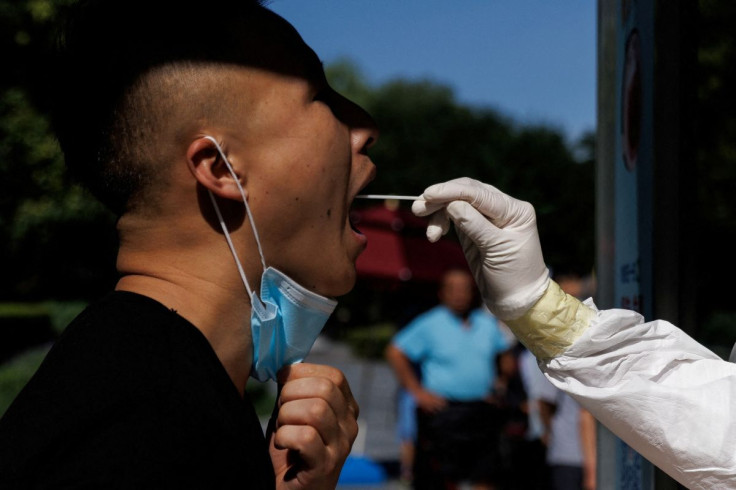BA.2.75 COVID Cases Growing: Where Has The New Variant Been Detected?
The BA.2.75 variant is picking up steam and has now been detected in seven U.S. states.
Cases of the subvariant of Omicron, which was first detected in India, have been identified in California, Washington, Illinois, New York, North Carolina, Texas and Wisconsin, according to New York Institute of Technology professor Raj Rajnarayanan, who has been tracking the virus, reports MSN.
While there is still much unknown about BA.2.75, the highly-contagious variant has been shown to evade immune response from both vaccines and prior COVID infections. It is still unclear if it causes serious disease compared to other variants of the virus.
“It's still really early on for us to draw too many conclusions,” Matthew Binnicker, director of clinical virology at Mayo Clinic, told the Associated Press. "But it does look like, especially in India, the rates of transmission are showing kind of that exponential increase.”
To date, the Centers for Disease Control and Prevention has not deemed BA.2.75 a variant of concern, nor is it included in its variant tracker. The variant has, however, also been detected in 10 other countries, including Australia, Germany, the United Kingdom, and Canada, with growing cases in India.
“It's about a quarter of the cases right now in India. It's sort of competing with BA.5 there,” Chicago Department of Public Health Commissioner Dr. Allison Arwady told NBC 5 in Chicago. “It does look to be contagious, at this point doesn't look to be more serious, but we're still learning. It's not been named a variant of concern at this point. So we're watching it just like we watch other variants.”
The best protection against B2.75, or the BA.5 variant that is dominating in the U.S. currently, is vaccinations and boosters, Binnicker told the AP.
“Some may say, ‘Well, vaccination and boosting hasn’t prevented people from getting infected.’ And, yes, that is true,” he said. “But what we have seen is that the rates of people ending up in the hospital and dying have significantly decreased. As more people have been vaccinated, boosted or naturally infected, we are starting to see the background levels of immunity worldwide creep up.”

© Copyright IBTimes 2025. All rights reserved.





















